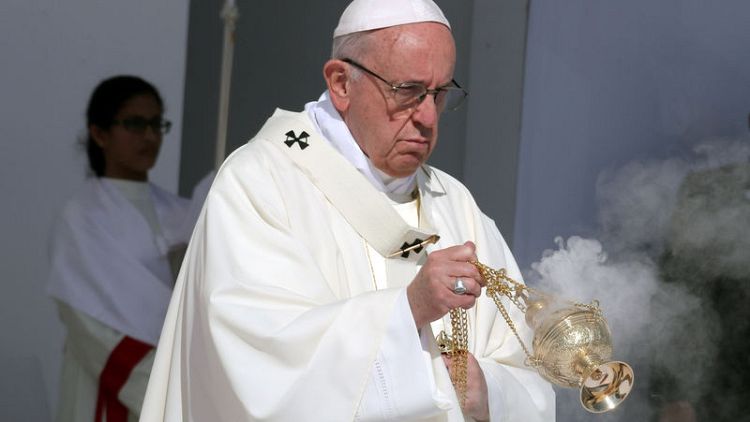VATICAN CITY (Reuters) - Pope Francis urged governments on Sunday to take decisive action against the $150 billion-a-year human trafficking business and the plight of millions of modern-day slaves.
Francis was addressing tens of thousands of people in St. Peter's Square two days after the Roman Catholic Church marked an annual day of prayer and awareness over human trafficking.
"I appeal, particularly to governments, so that the causes of this scourge are confronted decisively and the victims are protected," the Argentine pontiff said.
An estimated 45.8 million people live in some form of slavery across the world, according to the 2016 Global Slavery Index by human rights group Walk Free Foundation.
Migration has become a dominant and highly-politicised issue in Europe, though the peak of more than 1 million asylum seekers arriving in 2015 has tapered off since then.
Many migrants arrive via traffickers, often in dire conditions and for large sums of money.
"We all can and must do more and help by reporting cases of exploitation and slavery of men, women and children," the pope added.
Feb. 8, when the Church marks trafficking awareness day, is the feast of Saint Josephine Bakhita, who was born in Sudan in 1869 and sold into slavery as a child by kidnappers.
After she found freedom, she joined an order of nuns in northern Italy, where she died in 1947.
(Reporting by Philip Pullella; Editing by Andrew Cawthorne)
